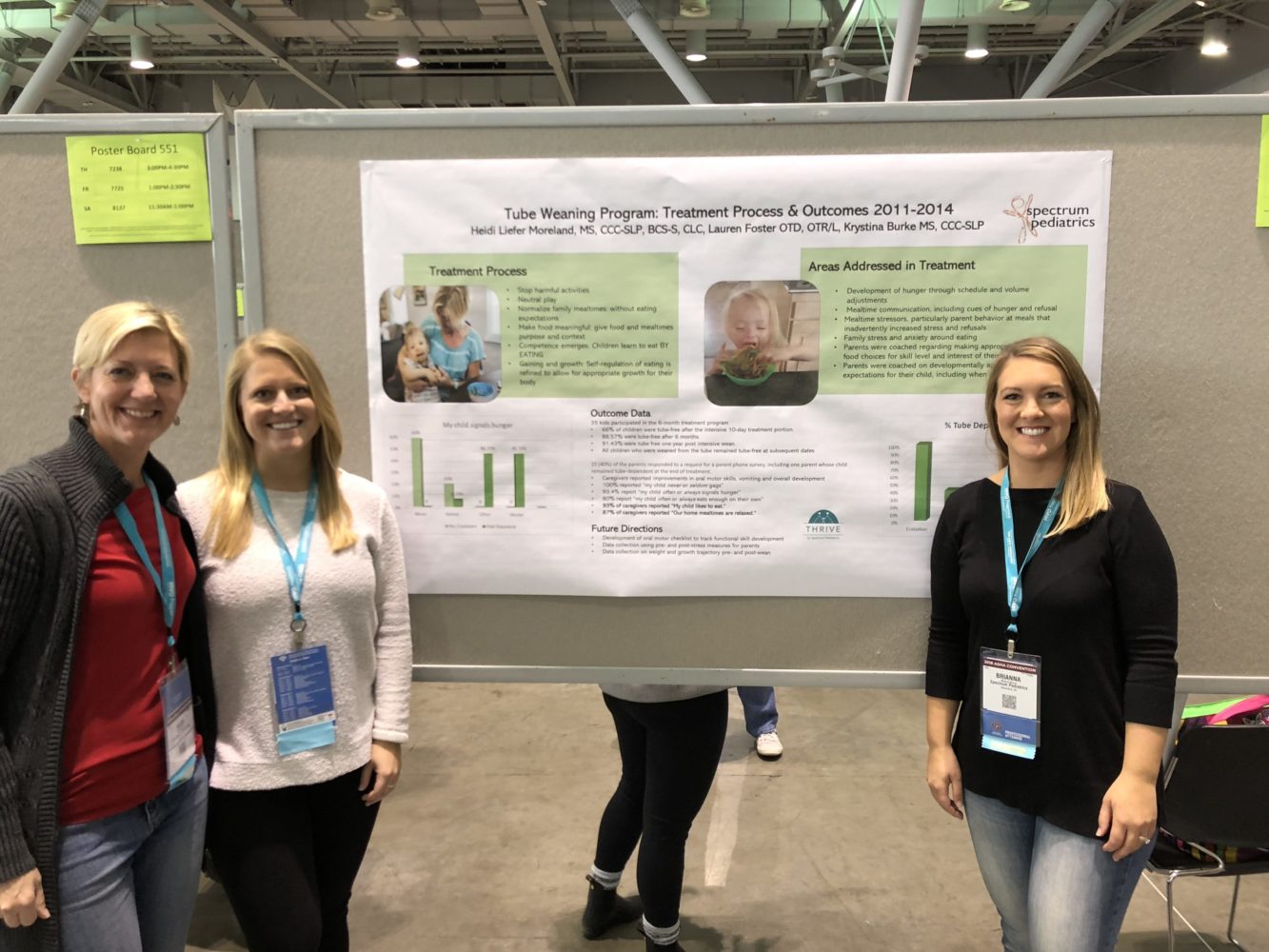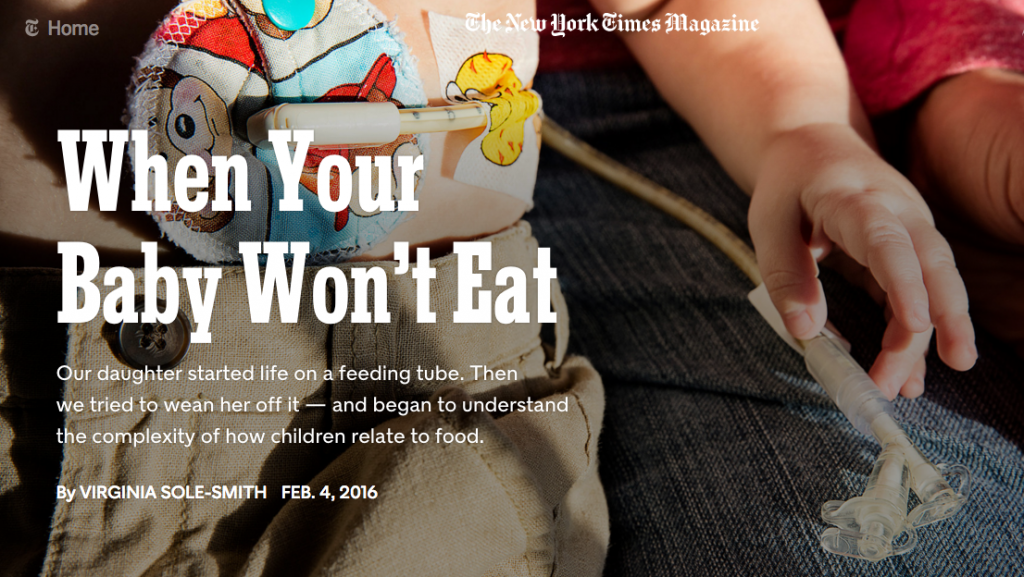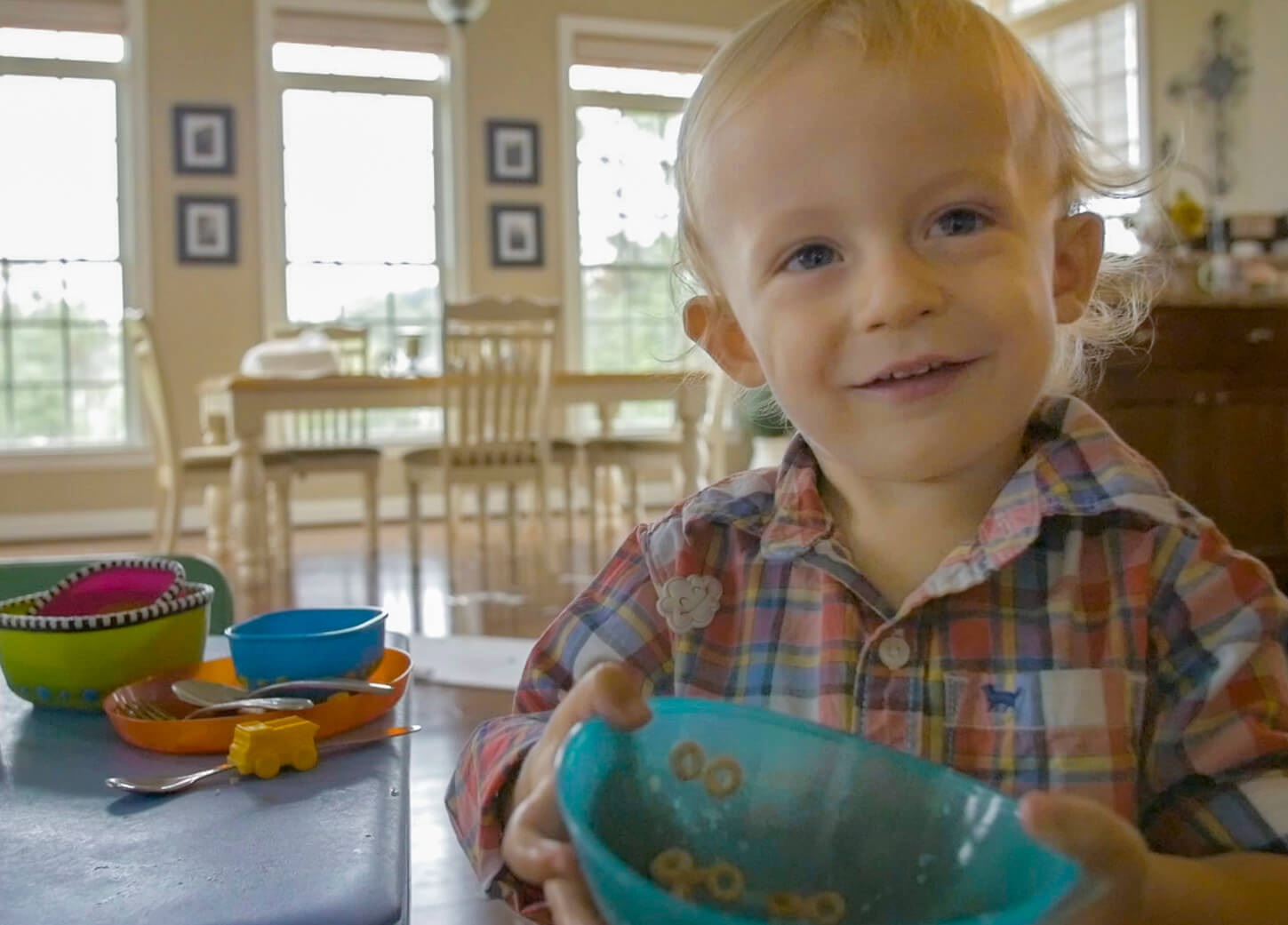Play is the way kids learn. We know that linking play and experience helps to build the brain. Positive experiences with food allows the senses to acclimate to the touch, feel, smell, or sight of whatever they are experiencing. Independent play in all settings helps to build interest, confidence, and motivation. Whether the goal is greater variety or simply […]
December 26, 2018

After the medical challenges that made a feeding tube necessary have been treated, many parents are left with the daunting task of weaning their child from tube use. However, if you haven’t been successful in working existing medical teams, it is wise to seek the assistance of programs and professionals who specialize in feeding tube weaning. Most physicians and feeding therapists don’t have […]
December 11, 2018

As a feeding therapist, I always thought that I was being helpful when I “coached” children through their bites, cheered, and “whoo hoo-ed!” for all their eating attempts. I also observed well-meaning parents, grandparents and caregivers cheer, clap, and praise any attempts at eating, but we often did not see a consistent increase in eating […]
December 3, 2018

The Thrive team presented at the American Speech-Language and Hearing Association National conference this past weekend. The presentation focused on the three main areas of our home-based feeding therapy approach: self-regulation, the division of responsibility, and importance of family mealtimes. We discussed why these three areas are crucial to feeding therapy and how these applied […]
November 19, 2018

No, that is not your job. Yes, children and parents both have their own roles to play during mealtimes, but parents often get caught up in the idea that their job is to make sure their child eats what is on their plate. The Division of Responsibility, created by Ellyn Satter, breaks down the different […]
November 7, 2018

Watch this video on YouTubeDisclaimer: Did you ever wonder why feeding therapy doesn’t look anything like the meals you hope to have? We did too! At Thrive, we believe that tube-fed kids need to learn to eat in the same safe way that other kids learn to eat, utilizing the same principles of healthy eating […]
November 1, 2018

Less. That’s right. Less. In today’s food-obsessed culture we often do too many well-meaning things to get our children to eat well instead of getting out of their way and letting them learn to eat well and enjoy food in the way their bodies and minds were designed. • Less Pressuring – Parents often use gentle and not-so […]
October 31, 2018

We are writing in response to the Ore-Ida “potato pay” ad campaign, in which they coach parents on how and how much to reward kids with French fries for eating their vegetables. I am sure they mean well, and it seems like a good idea on the surface. Rewarding kids for eating a nutritious food […]
October 26, 2018

Rusty was born full term, yet had many complications during his hospital stay such as noisy breathing, poor feeding, and poor growth. Rusty was initially breast fed, but due to difficulty with weight gain, Rusty received an NG tube for primary nutrition at 1 month old due to concerns of aspiration. Rusty then was diagnosed […]
October 23, 2018

Spectrum Pediatrics is honored to announce that our Feeding Tube Weaning Program was recently featured in the New York Times Magazine. Virginia Sole-Smith wrote a deeply personal article entitled, “When Your Baby Won’t Eat.” She bravely shares her family’s journey to help her daughter, Violet, become tube-free and learn to enjoy a healthy relationship with […]
October 23, 2018

According to the Family Dinner Project, which is a nonprofit organization operating from the offices of Project Zero at Harvard University, there are a number of benefits to having a family mealtime. Research indicates that children and adolescents who are part of regular family mealtimes have: Lower rates of substance abuse, teen pregnancy, and depression […]
October 23, 2018

Responsive Feeding: Mealtime guidance that depends upon the feeder’s ability to read the eater’s cues in order to make the meal manageable, enjoyable and successful for the eater, without giving up developmentally appropriate structure and expectations. The mealtime relationship is extremely dynamic and should evolve over time. In the beginning, the parent’s role is more permissive […]
February 25, 2018
